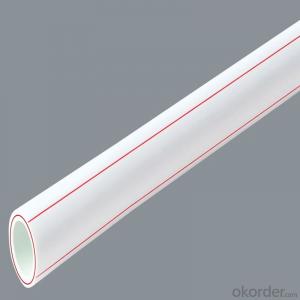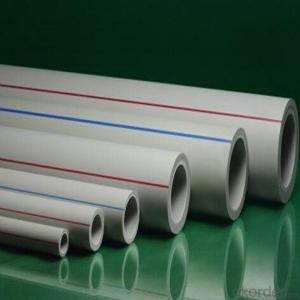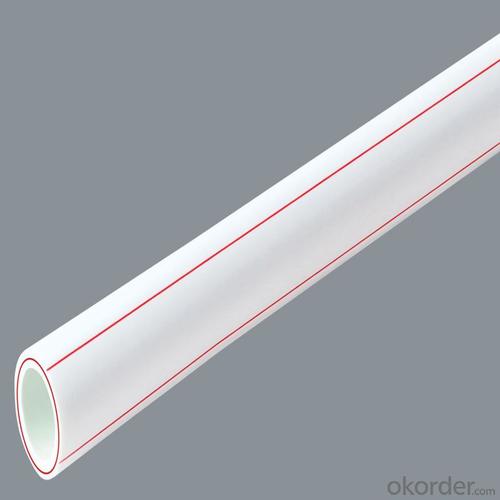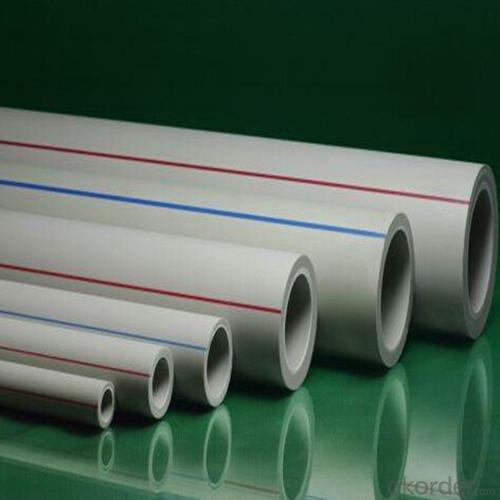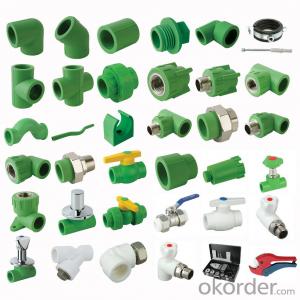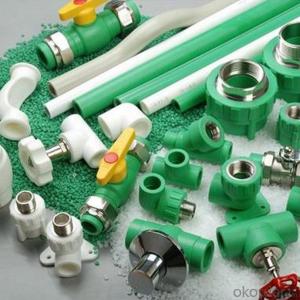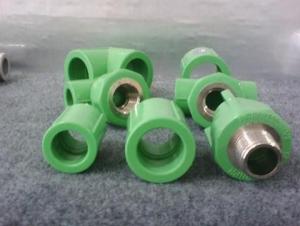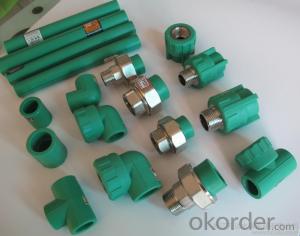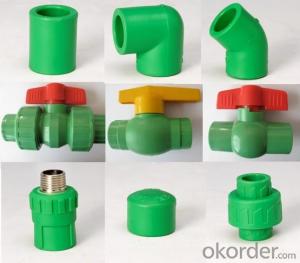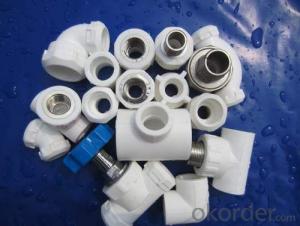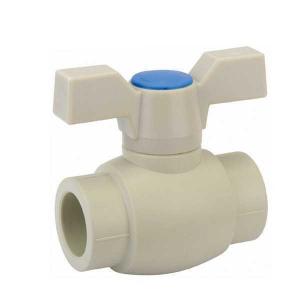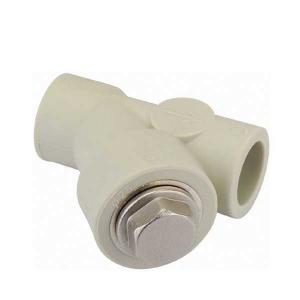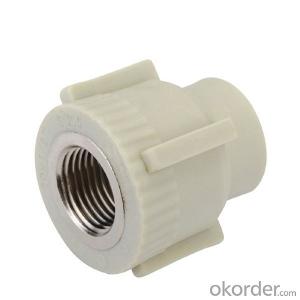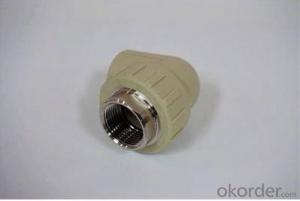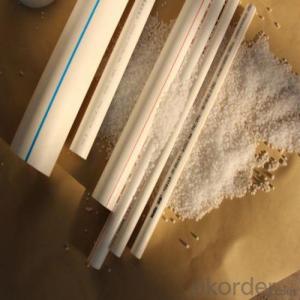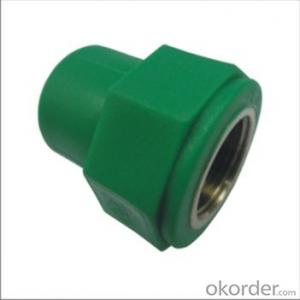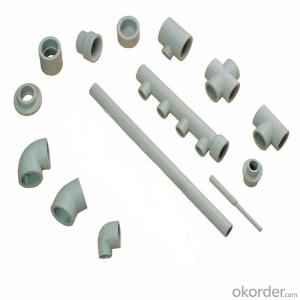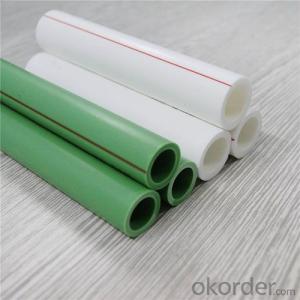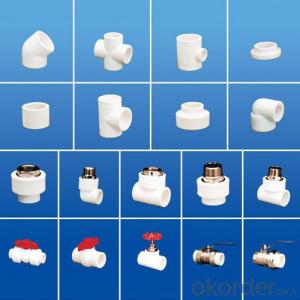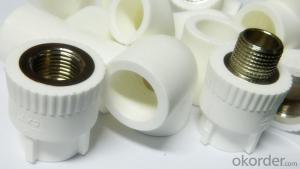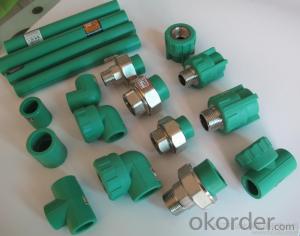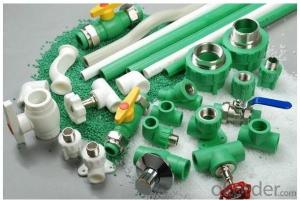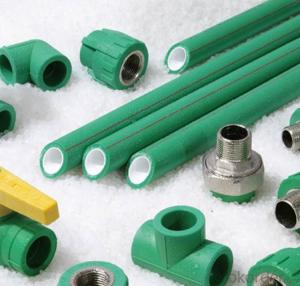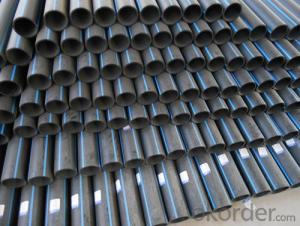High Quality Low Price Plastic Push Fit PPR Pipe and Fittings for Underground Water Supply
- Loading Port:
- Dalian
- Payment Terms:
- TT OR LC
- Min Order Qty:
- 1000 pc
- Supply Capability:
- 100000 pc/month
OKorder Service Pledge
OKorder Financial Service
You Might Also Like
Product Description
Place of Origin: Henan, China (Mainland)
Model Number: PE100
Material: PE
Specification: DN 20-mm~DN1200mm
Length: According to customer requirement
Thickness:SDR11/13.6/17
Standard: ISO
Color: many colors
Product name: Plastic Pipe
Application: house and garden
Usage: Family Decoration Industry
Certification: ISO Certificate
Feature: Lightweight
Size: Customized Size
Type: Round Pipe
Name: HDPE Plastic Pipe
Connection: Butt Fusion
Product Size
Product name | Size | Weight | Pack |
Equal tee
| (Gram/m) | (m/pack) | |
T20 | 19.4 | 800 | |
T25 | 30.5 | 450 | |
T32 | 48.2 | 260 | |
T40 | 90.8 | 150 | |
T50 | 142.5 | 106 | |
T63 | 275.3 | 54 | |
T75 | 515.0 | 30 | |
T90 | 712.0 | 18 | |
T110 | 1082.0 | 12 | |
T125 | 1544.0 | 8 | |
T160 | 2531.0 | 4 |
Product Show
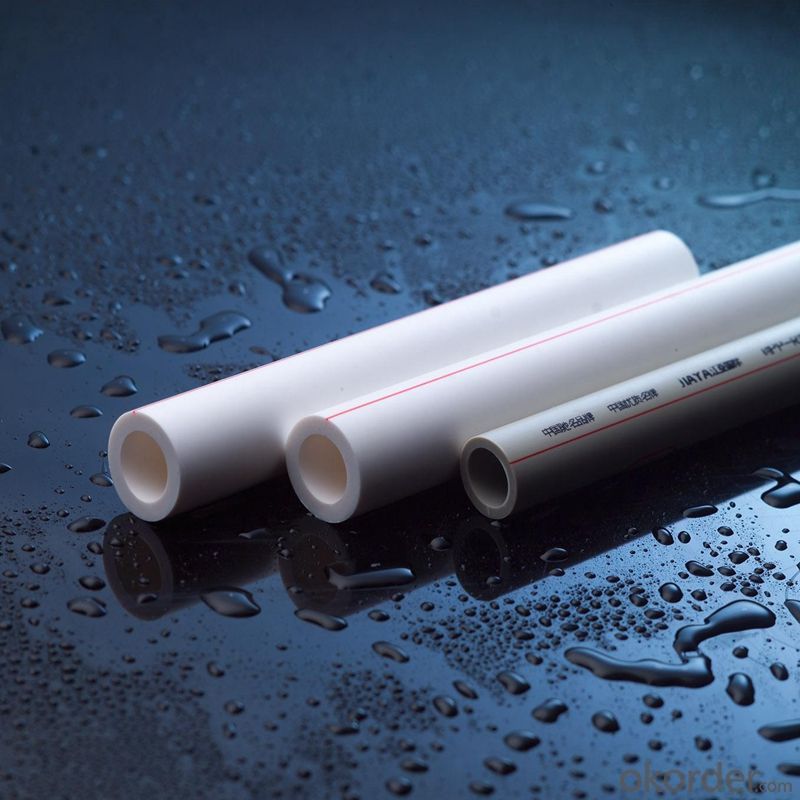
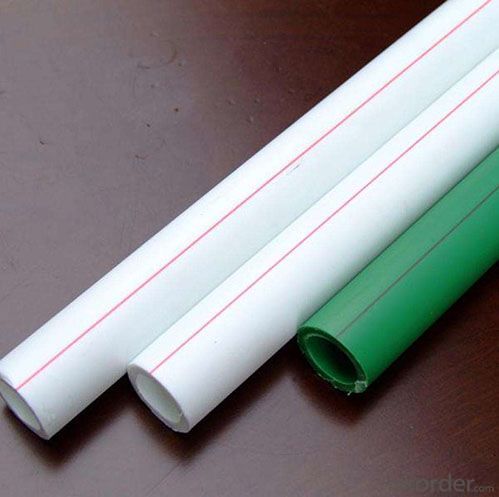
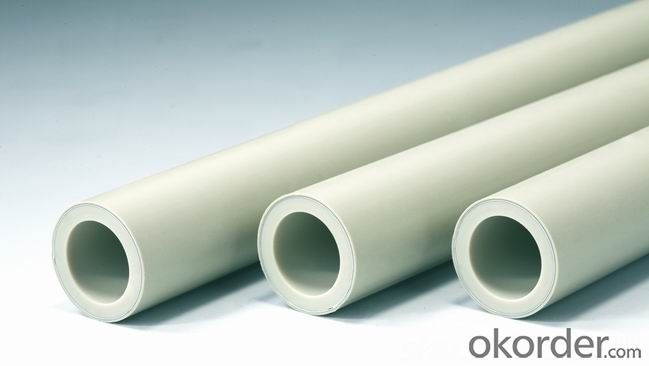
Company Information
CNBM International Corporation (CNBM International) is the most important trading platform of CNBM Group Corporation, a state-owned company under the direct supervision of State-owned Assets Supervision and Administration Commission of the State Council.
CNBM International is highly recognized by its business partners and clients all over the world and has obtained rapid development under the spirit of win-win. We will carry on the mutual beneficial, innovative and revolutionary trading structure as we did before, create value for our employees, shareholders and clients and benefit the whole society in our future development.
Applications
> Distribution for cool and hot water;
> Duct for drinkable water system;
> Pipes for kinds of high-temperature and low-temperature heating system;
> Pipes for heating and cooling settings in solar energy system;
> Connecting pipe for air conditioners;
Product Advantages
1) Healthy, bacteriological neutral, conforming to drinking water standards 2) Resistant to high temperatures, good impact strength
3) Convenient and reliable installation, low construction expenses
4) Excellent heat-insulation property from minimum thermal conductivity
5) Lightweight, convenient to transport and handle, good for labor-saving
6) Smooth inner walls reduce pressure loss and increase flow speed
7) Sound insulation (reduced by 40% compared to galvanized steel pipes
8) Light colors and excellent design ensure suitability for both exposed and hidden installation
9) Recyclable, environment-friendly, accords with GBM standards
FAQ
· Q1: How Can I Get A Sample?
· A1: You can get samples by communicate with our export sales.
· Q2: How Long Is Delivery?
· A2: Delivery time will be30-45days according to order quantity.
· Q3: What Is The MOQ?
· A3: MOQ depends on different items.
· Q4:What Is Our Normal Payments Terms?
· A4:Our normal payment terms now is: T/T, L/C or western union,paypal.
- Q: Can plastic pipe fittings be used for rainwater collection systems?
- Yes, plastic pipe fittings can be used for rainwater collection systems. Plastic fittings are commonly used in these systems due to their durability, affordability, and resistance to corrosion.
- Q: Are plastic pipe fittings compatible with barbed connections?
- Yes, plastic pipe fittings are compatible with barbed connections.
- Q: Can plastic pipe fittings be used for oil refinery processes?
- No, plastic pipe fittings are not suitable for oil refinery processes due to their inability to withstand high temperatures and the corrosive nature of the chemicals involved.
- Q: Can plastic pipe fittings be used in fire-rated systems?
- No, plastic pipe fittings cannot be used in fire-rated systems. Fire-rated systems require materials that can withstand high temperatures and provide fire resistance, which plastic fittings are unable to do.
- Q: Are plastic pipe fittings compatible with flange connections?
- No, plastic pipe fittings are not generally compatible with flange connections. Flange connections are typically used for joining metal pipes, while plastic pipe fittings are designed for use with plastic pipes and utilize different connection methods, such as solvent welding or compression fittings.
- Q: How do plastic pipe fittings compare to polypropylene fittings?
- Plastic pipe fittings and polypropylene fittings are both types of plastic fittings commonly used in plumbing systems. However, there are some differences worth noting. Plastic pipe fittings are a broad category that includes fittings made from various types of plastic materials, such as PVC, CPVC, and ABS. On the other hand, polypropylene fittings are specifically made from polypropylene, a thermoplastic polymer known for its high chemical resistance and durability. In terms of performance, polypropylene fittings generally offer superior chemical resistance, making them more suitable for applications involving corrosive or aggressive fluids. They are also known for their high temperature resistance and mechanical strength. Plastic pipe fittings, on the other hand, can vary in terms of quality and performance depending on the specific material they are made from. Another important aspect to consider is the ease of installation. Both plastic pipe fittings and polypropylene fittings are typically designed for solvent welding or using mechanical connections. However, polypropylene fittings often have a more precise and secure fit due to their tighter tolerances, which can simplify the installation process and reduce the risk of leaks. Ultimately, the choice between plastic pipe fittings and polypropylene fittings depends on the specific application requirements, such as the type of fluid being transported, the temperature and pressure conditions, and the chemical compatibility needed. It is important to consult with professionals or follow the manufacturer's recommendations to ensure the right choice for each individual case.
- Q: Do plastic pipe fittings require any special testing or certification?
- Yes, plastic pipe fittings typically require special testing and certification to ensure they meet industry standards for safety, durability, and performance. This is essential to ensure that the fittings can withstand the intended pressure, temperature, and chemical exposure. Testing and certification processes help identify potential flaws or weaknesses in the fittings and ensure they comply with relevant regulations and standards.
- Q: Do plastic pipe fittings require any special threading or grooving?
- No, plastic pipe fittings do not require any special threading or grooving. They are designed to be easily connected using compression or push-fit mechanisms, eliminating the need for threading or grooving like in metal pipe fittings.
- Q: Are plastic pipe fittings resistant to hydrochloric acid?
- No, plastic pipe fittings are not resistant to hydrochloric acid.
- Q: How do you prevent leaks in plastic pipe fittings?
- To prevent leaks in plastic pipe fittings, it is essential to follow a few key steps. Firstly, ensure that the pipe ends are clean and free from any dirt or debris. Next, use proper tools to tighten the fittings securely, avoiding over-tightening which may damage the threads. Applying a suitable sealant or thread tape to the male threads can also help create a watertight seal. Finally, regularly inspect the fittings for any signs of wear or damage, and promptly replace any faulty components to prevent leaks from occurring.
Send your message to us
High Quality Low Price Plastic Push Fit PPR Pipe and Fittings for Underground Water Supply
- Loading Port:
- Dalian
- Payment Terms:
- TT OR LC
- Min Order Qty:
- 1000 pc
- Supply Capability:
- 100000 pc/month
OKorder Service Pledge
OKorder Financial Service
Similar products
Hot products
Hot Searches
Related keywords
